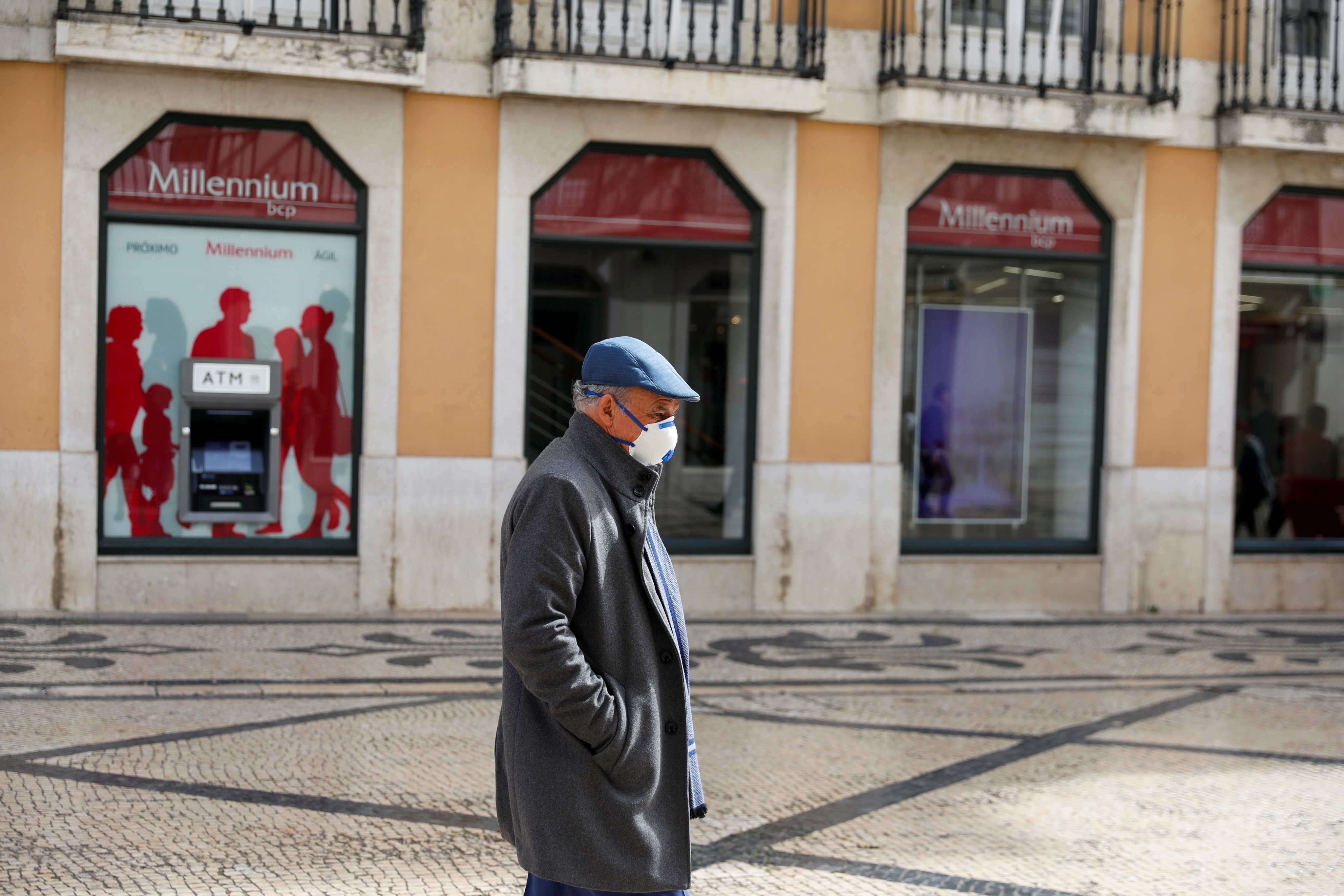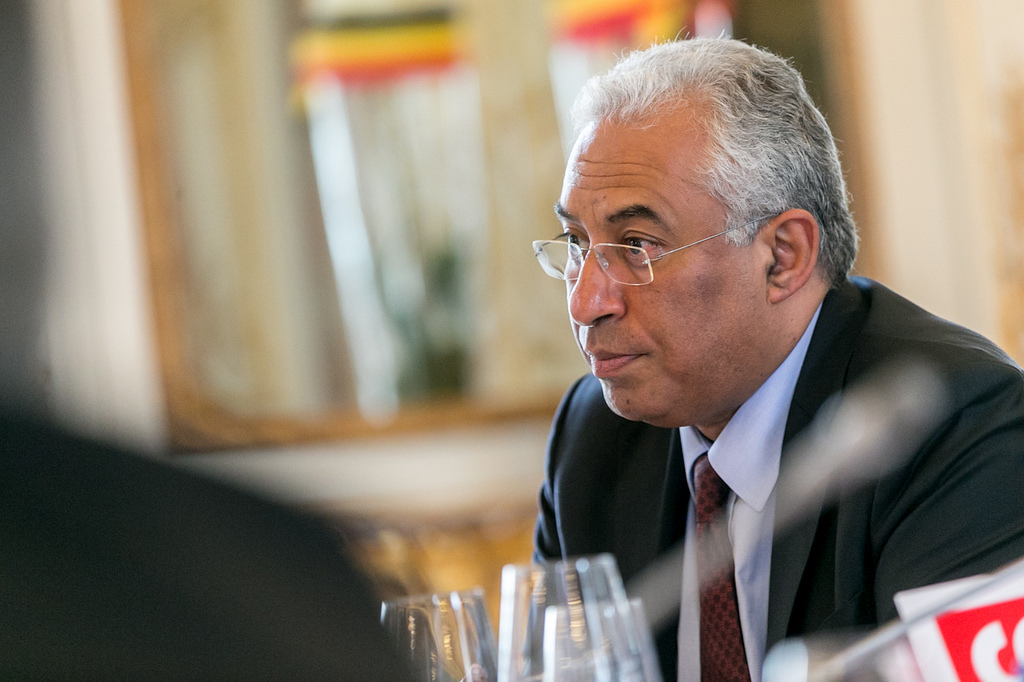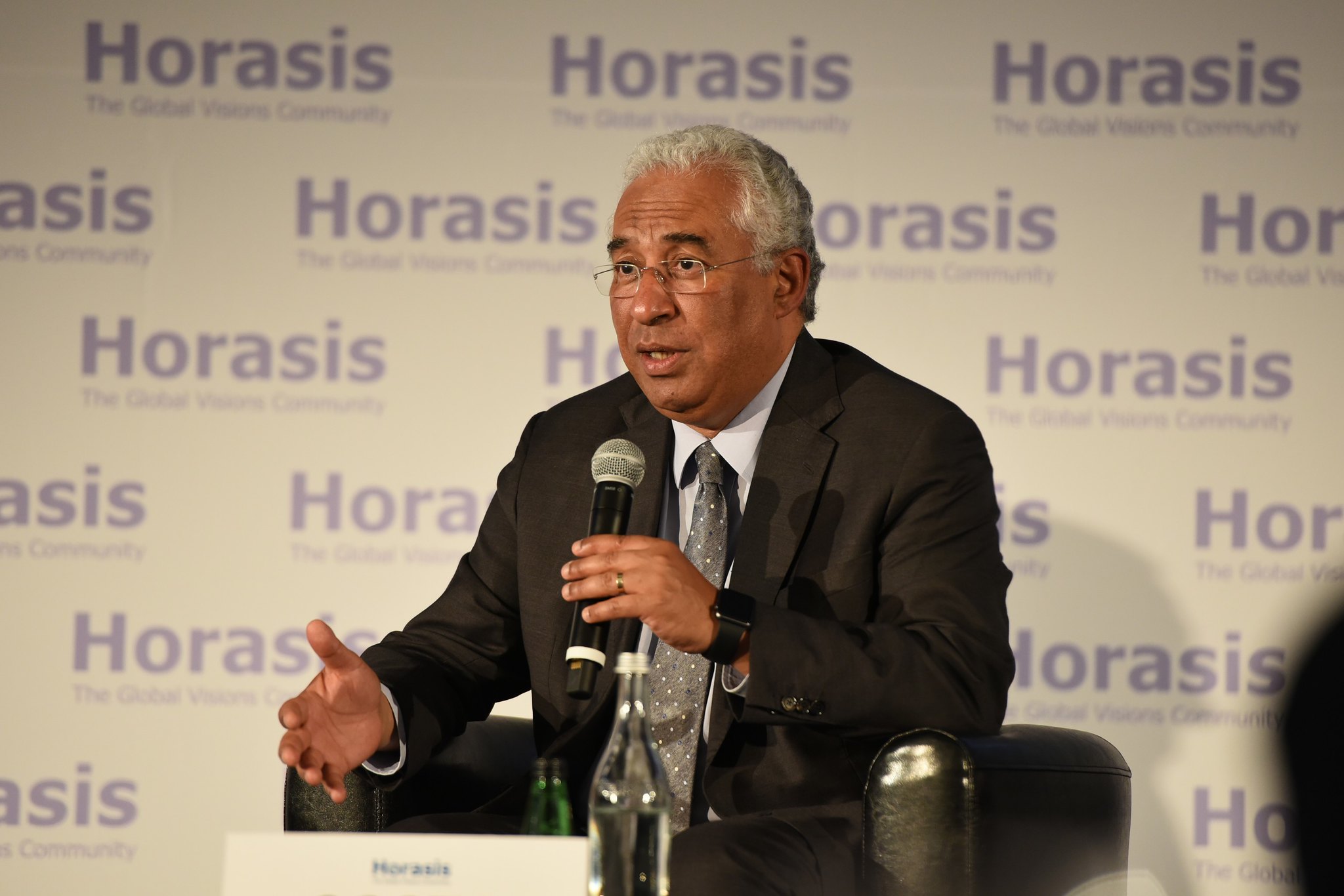Portugal's 'miracle' economic recovery (based largely on tourism) has been shattered by the coronavirus pandemic. With unemployment rising and the economy nosediving, a revolutionary backlash is on the horizon.
Throughout the last month, viewers of Portuguese and British television alike have been treated to the unedifying spectacle of various PS government ministers prostrating themselves before the British government. The Portuguese foreign affairs minister Augusto Santos Silva called it “senseless and unfair” that British tourists are still effectively banned from visiting Portugal. “This is not the way in which allies and friends are treated,” he whinged, as though calling into question Boris Johnson’s loyalty to the Portuguese state could change his mind.
“Portugal has better public health indicators and better pandemic response indicators than the United Kingdom,” added interior minister Eduardo Cabrita. “So there’s no reason, according to all the comparative criteria, for the existence of any application of quarantine rules on return to the United Kingdom.”
The PS ministers’ pleading words did serve to highlight the farcical hypocrisy of the Tory government on this question. This hypocrisy was fully exposed by the Tories’ sudden U-turn last week on allowing tourists to travel to Spain without quarantine. It is also true that the UK has been hit much harder by COVID-19 than Portugal (and most of Europe) in terms of number and cases and deaths – the British government is largely to blame for this. That’s nothing for the PS government in Portugal to celebrate. And it doesn’t justify them trying to avoid responsibility for the hundreds of thousands – if not millions – across the country who will be ruined and impoverished by the current crisis.
What the desperate pleas of the Portuguese government really demonstrate is their total dependence on a system that doesn’t work. They have no answer to the crisis of capitalism, to begging for richer countries to keep sending their tourists to Portugal – at a time when tourism the world over has completely collapsed.
They are really begging for a return to the pre-crisis ‘normal’. This was a period when the Portuguese economy was experiencing mild growth and unemployment figures had a downward trajectory; when they could blend austerity policies with some minimal concessions to the working class on near-balanced budgets, with little political opposition. For a brief moment, due to several factors we’ve outlined previously, the Portuguese economy appeared stronger than it really was. The factors behind the Portuguese ‘recovery’ of the previous period are now the very factors dragging the economy into a recession. To imagine a return to this previous period any time soon is utterly utopian.
Unprecedented crisis
 The coronavirus has turned Portugal's relative stability into its opposite. One way or another, this was inevitable / Image: fair use
The coronavirus has turned Portugal's relative stability into its opposite. One way or another, this was inevitable / Image: fair use
Instead, we are facing the worst economic crisis in the modern history of Portugal. The government’s supplementary budget for the COVID-19 crisis was based on a 6.9 percent contraction of the economy. However, in mid-June the Banco de Portugal warned that the economy was set to contract by at least 9.5 percent – possibly by as much as 13.5 percent. They suggested that the economy wouldn’t return to its March 2020 level for two and a half years.
These figures are much worse than the picture the BdP painted in March, during the first weeks of lockdown in Portugal. At that time, they suggested a “worst-case scenario” of the economy shrinking 5.7 percent this year. Their June prediction was more than twice as bleak. The next forecast they make will likely be even worse!
The central bank described the tourist industry as in a state of “total collapse” – the Portuguese tourism sector will contract by 60 percent this year. They also explained that tourism will be a major factor in the pace of economic recovery, which “should be very gradual, in a context of high uncertainty and potential changes in the preferences and behaviours of consumers… also taking into account the high elasticity of income from tourism spending.”
During the recent period, tourism in Portugal expanded to encompass almost 20 percent of GDP. This was hailed by bourgeois commentators the world over as the secret of an economic success story. Now, just as we predicted, the Portuguese economy’s over-reliance on tourism is the very thing pulling it over the edge of a cliff. As the BdP stated, “given the relatively high weight of tourism in total exports compared to other countries, Portugal is particularly exposed.”
They also predicted that Portuguese exports as a whole “will lose share in foreign markets in 2020”, returning Portugal to its traditional position as one of the least competitive economies in Europe. The BdP also links this process in part to an over-reliance on tourism: “this loss essentially reflects a composition effect, associated with Portugal's relative specialisation in the tourism sector. Recovery of these exports should also be slower, occurring more significantly only in 2022.”
From the first days that COVID-19 spread across Portugal, it was also clear that the real estate bubble, which had been inflated since the liberalisation of the housing market in 2012, had well and truly burst. The rise of property prices was already grinding to a halt over the previous two years, but the pandemic triggered a mass exodus of foreign investors. In March alone, Portugal lost somewhere between 60 percent and 90 percent of its international investment in property. There has been a huge reduction in the number of properties being sold or developed this year.
The effect of the property investment bubble on the Portuguese economy was largely speculative. It bore no relation to the real economic situation most people were experiencing before the current crisis. Yet it was a factor in the growth of the economy being reported, as Portugal was being hailed as an investor’s paradise. Just last year the Times published a survey naming Lisbon as the number one European hotspot for investment. Now that a huge chunk of that investment has vanished, what was being used to dress up Portuguese growth figures now by its absence reveals the true weakness of the economy.
Effects on the working class
For most people in Portugal, the crisis has nothing to do with speculative investment. It means simply not being able to pay the rent and thus face eviction. It means losing your job, being forced to work under far-more-difficult and often unsafe conditions, or losing your small business.
By the end of April, 125,000 more people were unemployed than at the start of the pandemic. The government reported in June that the unemployment rate was up to 7 percent, but this figure was widely criticised for being a massive underestimate. More telling was the statistic from the Institute of Employment and Professional Training that 103,763 more people were unemployed than in June 2019. Unemployment in the Algarve region – which is most heavily reliant on tourism – has increased by more than 200 percent.
These numbers do not include the 800,000 workers who have been in temporary “lay-off” during the past few months, surviving on a social security hand-out equivalent to two-thirds of their wage. Overall, the CGTP estimates that more than a million people have lost their income in the course of the pandemic and subsequent crisis – more than 20 percent of the total workforce in Portugal.
Many of those who were laid-off during the lockdown will never be able to return to the same jobs or working conditions they had previously. The government legislated and budgeted for social security on the assumption that things will eventually return to normal – but the old ‘normal’ is gone for good.
Again, one of the things most celebrated by the ruling class about Portugal’s so-called recovery has turned into its exact opposite. The unemployment rate was kept down artificially by the scourge of casualisation. Now hundreds of thousands of casualised workers in the tourist industry and beyond face chronic unemployment, as the short-term contracts and temporary, seasonal and bogus ‘self-employed’ work dries up.
In relation to housing, under pressure from Bloco de Esquerda, a law was rushed through parliament in March suspending all evictions and the termination of leasing agreements. This was the minimum requirement to avoid thousands of people being thrown onto the streets during lockdown. The government’s Institute for Housing and Urban Rehabilitation also began offering loans to help tenants (and landlords) cover their rent.
These concessions are time-limited. The suspension of evictions and the termination of rent contracts is set to be lifted in September. What happens then, to the thousands still in a desperate situation at risk of being without a home?
Meanwhile, the thousands who have applied for the IHRU’s loan to cover their rent will have to start paying it back within six months of the end of Portugal’s state of emergency (in January 2021) at the latest. This maybe explains why there weren’t more people willing to take up this offer, even if they were in urgent need of it. In January next year many of those who have received the loan will be in the same dire state they are in now, with the added bonus of having to pay the government back on top of the rent they already can’t afford.
The PS government has been very clear that it doesn’t support the non-payment of rent, whatever the situation. It has encouraged more people to apply for the IHRU loan instead – which does nothing for people in desperate financial need in the long run. However, many came to the practical conclusion that non-payment of rent was their only option during lockdown. With the suspension of evictions enforced to avoid a social explosion over housing, landlords were often in no position to argue at the time. Of course, their condition was that the rent in arrears would be paid later. With the deepening of the economic crisis, this is still not a practical option for a lot of people. And so, the social explosion over housing hasn’t been subdued but simply delayed for a later date.
Also on the housing question, then, the PS government has applied only partial and temporary measures on the basis of a return to the previous period of relative stability. It doesn’t want to take on landlords, but is afraid of coming down hard on tenants, which could provoke a huge backlash. In this way, the government is preparing an even deeper social crisis for the next year, of which housing will be a key component.
As well as the housing crisis, the chronic underfunding of the National Health Service (SNS) will come home to roost as the economic crisis worsens.
The SNS has so far coped with the COVID-19 pandemic better than many expected, because the government did act fairly quickly and decisively as the disease started to spread across Portugal. Out of fear at what was happening in Italy and neighbouring Spain, a lockdown was imposed early on and free testing centres were set up in every town and city. Some private hospital beds were requisitioned temporarily to treat COVID-19 patients, and a specialist SNS phone diagnosis service was quite effective.
Of course, these measures were criminally undermined by the speed at which everything was opened up again, to save the market economy from total collapse. People were forced back to work far too early for it to be safe, and all of the social distancing rules of lockdown went out of the window when it came to the workplace and commuting. Some non-essential work – such as at construction sites – never stopped. Unsurprisingly, a state of emergency soon had to be re-enforced in 19 neighbourhoods of the commuter belt around Lisbon. These are working-class neighbourhoods from which tens of thousands of people are crowded onto trains to the capital every morning. In July, COVID-19 cases also spiked in the Algarve as it opened up to European tourists for the summer.
Worse is to come for the SNS, though. As has been widely reported, it has already been in crisis for some time. An ever-decreasing proportion of GDP has gone towards public health care, with the result that the numbers of doctors, hospitals and clinics per capita have been reduced over a prolonged period. Many health centres in suburban and rural areas have been merged together, leaving vulnerable people to travel long distances for healthcare. When they get there, often the centre no longer has an on-site doctor – with overstretched nurses doing several jobs at once. User charges, meanwhile, have been going up and up. One result of the crisis is the dramatic rise in maternal and infant mortality rates during the last few years.
Until this year, the health crisis was happening while unemployment was relatively low, real wages were creeping up and the government had more fiscal income to play with. The situation has been completely transformed. Unemployment is shooting up, which will have a knock-on effect on wages and living standards, and the government has a mountain of new debt to pay off. Where it was whittling away from the national health budget before, it will be slashing away now. At the same time, the SNS is reeling from the thousands of COVID-19 patients it has had to treat whilst already being underfunded, understaffed and overwhelmed. The health crisis in Portugal will reach a new level during the coming months and years.
Only revolution will solve this crisis
 Antonio Costa says: “Portugal can’t take another lockdown". In part, he's referring to the economy, but also the effect on the increasingly frustrated masses / Image: Party of European Socialists, Flickr
Antonio Costa says: “Portugal can’t take another lockdown". In part, he's referring to the economy, but also the effect on the increasingly frustrated masses / Image: Party of European Socialists, Flickr
The bleak picture before us is the present and future of Portuguese capitalism, which is completely incapable of solving any of the problems posed by the current crisis.
The recently-announced European rescue package staves off a direct confrontation with Portugal’s European creditors at least in the short-term. In the current conditions of unprecedented economic crisis, the main powers in Europe want to avoid a Greece-type scenario anyway. Confrontation is not off the table, though. It will happen internally, in the form of class conflict between the Portuguese ruling class and the working class.
Back in April, an article appeared in the right-wing Diário das Notícias entitled ‘Coronavirus collapse: depression or revolution?’ In it, Daniel Deusdado – the former Director of Programming for Portugal’s largest television network RTP – says: “This economic depression has all the ingredients to generate a revolution. And it can happen even before a year of a coronavirus crisis.” Straight from the horse’s mouth!
This perspective is one we would agree with wholeheartedly. People will not take this situation lying down. There are enormous events in the offing, with revolutionary implications. Workers and young people are coming to realise that this system offers them nothing but crisis after crisis, suffering upon suffering. A fundamental transformation of society is necessary. There must a leadership ready to point way forward towards that transformation, harnessing the power of a mass movement.
The Prime Minister Antonio Costa, on the other hand, cowers in terror at the situation that lies before him. “Portugal can’t take another lockdown,” he announced two weeks ago. His words stand mostly for the fears of the Portuguese ruling class about the future of their economy. However, they also hint at his fear of the masses in the event of another COVID-19, during which the pressure of the ruling class to avoid a lockdown with the necessary social security measures will be countered by a huge social backlash from the working class.
Here we see the absolute dead-end of reformism, which is caught between a rock and a hard place in this crisis. Building a revolutionary leadership capable of overthrowing the rotten, senile, hopeless capitalist system is the only solution.

